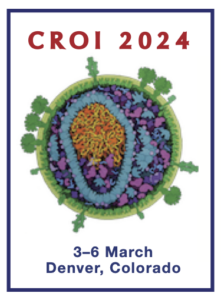CROI 2024: studies to watch for at this upcoming conference
1 March 2024. Related: Conference reports, CROI 31 Denver 2024.
Simon Collins, HIV i-Base
 After last year’s success as a hybrid meeting, access to CROI 2024 this year is both in-person in Denver and online.
After last year’s success as a hybrid meeting, access to CROI 2024 this year is both in-person in Denver and online.
Although detailed news is embargoed until later in the conference, more than 1000 studies will cover basic, clinical and translational science relating to HIV treatment and prevention. The programme includes state-of-the-art lectures and pre-meeting workshops that set the latest developments in context.
Researchers are asked to highlight if their work was in specific populations, including around 100 or more studies each in adolescents, people who use drugs, and transgender men or women. More than 200 involve gay and bisexual men, and more than 250 are about women and girls.
Even though accepted for CROI, some studies will be much more important than others, many might only add a little new knowledge and others will have tentative data that is limited by the design or size of the study.
Some of the main themes are outlined below, though with limited details as even abstract titles are embargoed. Like all conferences, the breadth and diversity of research is just as important as the headline stories that will be rapidly reported, sometimes even before the results have been presented in detail.
This year CROI has restricted the online programme to registered delegates until after the meeting. i-Base will still reference these studies and include the abstract URL, although the links might not become active until after the conference.
CROI 2024 website and resources
https://www.croiconference.org/croi-2024-resources/
Major themes and news to watch for
CROI will include presentations to move your heart and your brain.
Opening talks include an overview of HIV vaccine research by Barney Graham and a call to end new cases of paediatric HIV by Dorothy M’bori-Ngacha.
Importantly, the community Martin Delaney Presentation will be given by Frank Mugisha, a Ugandan activist now living in the US, who is likely to set the political tone for the conference.The LGBT+ hate law passed in Uganda last year has dismantled decades of the country’s pioneering responses to HIV. Instead, Uganda is now pioneering hatred and shame. Withdrawing rights from LGBT+ citizens has disconnected the country from international funding and international health programmes. The call for global activism has never been greater. [1, 2]
Research into new drugs
Many studies will include early results on potential new drugs, with a clear emphasis on longer acting drugs.
- These include oral drugs that can be taken weekly, long-acting injections given every four, six or 12 months and a new branding for ‘ultra-long-acting’ investigational formulations of dolutegravir, bictegravir and cabotegravir.
- Expect many studies on lenacapavir, already approved for people with drug resistance, including in new dual combinations.
- Other compounds at early stages of development include a new version of islatravir (MK-8527), GS-1720 (a weekly oral INSTI), maturation inhibitors VH3739937 and GSK3640254, GS-5894 (bavtavirine, a once-weekly NNRTI) and GS-9770 (a protease inhibitor).
- There is likely to be news on broadly neutralising antibodies (bNAbs) used for both treatment and prevention, including results from new studies. Several studies will include new dual combinations where existing drugs are paired with long-acting bNAbs.
Long-acting injections with CAB-LA
Already approved as treatment when combined with rilpivirine-LA, and also approved as PrEP in some countries, there will likely be dozens of studies about this long-acting injectable integrase inhibitor.
- Look for new studies about access, predictors of viral rebound, new formulations and use in specific populations including children and adolescents.
HIV prevention
Hundreds of studies about HIV prevention are likely to report on all aspects of PrEP (and a few perhaps on PEP).
- These will cover efficacy of existing PrEP and ongoing research into different formulations, including longer-lasting injections and implants, a rectal douche and perhaps new ways of using event-based PrEP.
STI prevention
- Using antibiotics to prevent STIs, including DOXY PEP, is likely to be an important aspect of other issues relating to sexual health.
Complications and HIV management
- Dozens of studies will look at complications of HIV management, including when low levels of HIV continue to remain detectable.
- Last year at CROI the REPRIEVE study reported benefits of earlier use of statins and this year might see additional results, just as new US guidelines on statin use in HIV have been released.
- Last year the ANCHOR study reported on the benefits of screening for anal cancer and this year other studies are likely to report on complications where risks are higher for people living with HIV.
- Other complications will cover drug resistance with latest treatment, in different countries and populations.
Switching ART, cure-related studies and more
- Expect to read about studies switching treatments to manage or avoid side effects and how some combinations approved as switch drugs are now being used as first-line therapy.
- Dozens of studies will report on cure-related research, concerns about neurologic symptoms, with perhaps
Studies relating to children and women
Roughly a hundred studies covered many aspects of paediatric care and more than 250 studies were focused on women’s health.
- The CARES study is looking at treatment with cabotegravir (CAB) and rilpivirine (RPV) versus standard oral ART, taking a public health approach with sparse viral load monitoring in African countries. Week 48 results.
- CAPRISA 018 phase I first in human trial of tenofovir alafenamide (TAF) implants in South African women at low risk for HIV.
- IMPAACT P1115 looks at ART-free remission in very early treated children.
- ODYSSEY shows superior efficacy of dolutegravir first- and second-line in children at week 192.
- MOCHA study of CAB and RPV in adolescents. Week 24 results.
- There are several (welcome) presentations on hypertension and ART, pregnancy and postpartum including from VESTED, Tsepamo and DolPHIN 2 studies.
- A number of presentations from the PETITE study provide much-needed data to inform the dosing of neonates, including for DTG.
SARS-CoV-2, COVID and mpox
CROI continues to heavily feature SARS-CoV-2 and COVID-19 perhaps accounting for almost 20% of studies in the programme.
- Many will cover natural history, Long-COVID, vaccine response, treatments etc.
- Although many of these are not directly related to HIV, some will cover complications from HIV/SARS CoV-2 coinfection.
- Studies on mpox will cover outbreaks last year and results of potential treatment including tecovirimat.
Details to follow
An updated version of this article with references to specific studies will also be posted after the conference is underway, when relevant embargoes will be lifted.
References
- Uganda report: Increase in LGBTQI+ assaults and human rights violations need urgent activist responses
https://i-base.info/htb/46384 - Uganda hate law blocks HIV research: join 300 leading researchers in sign-on protest
https://i-base.info/htb/47023



